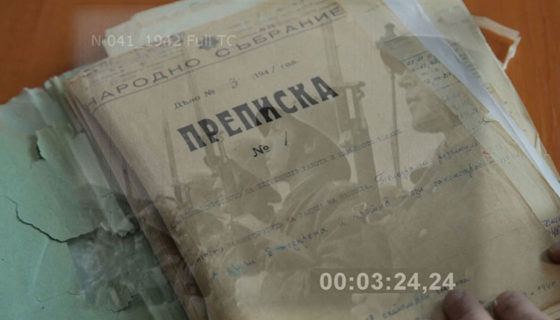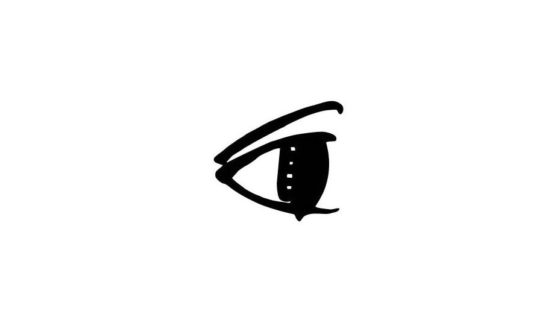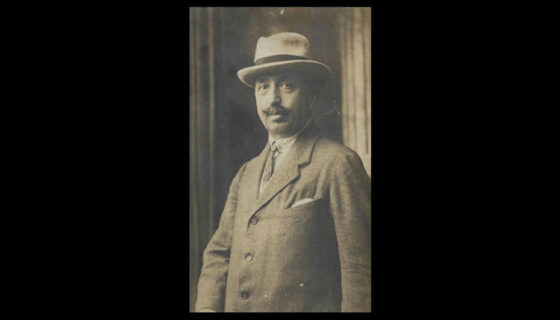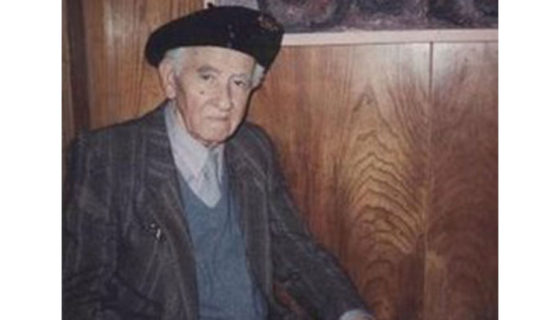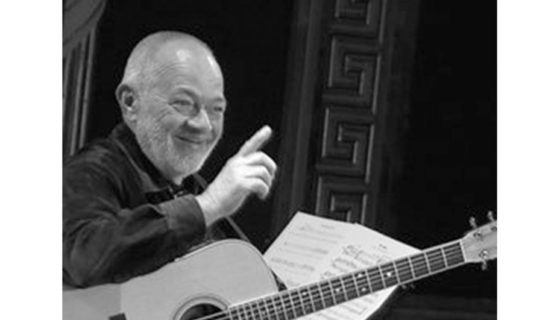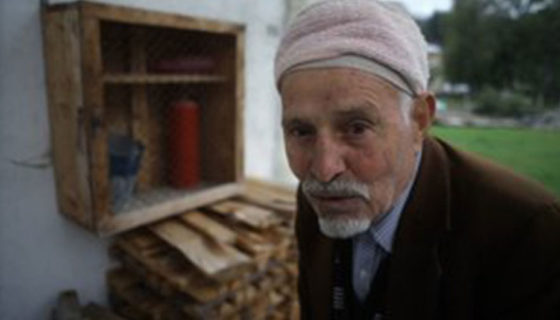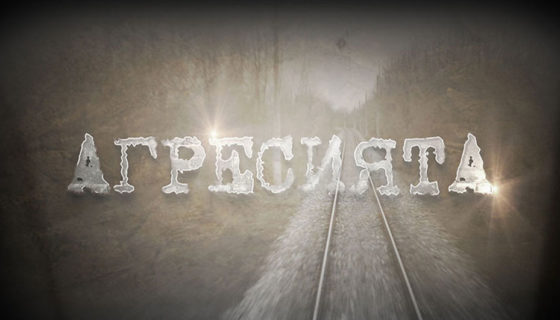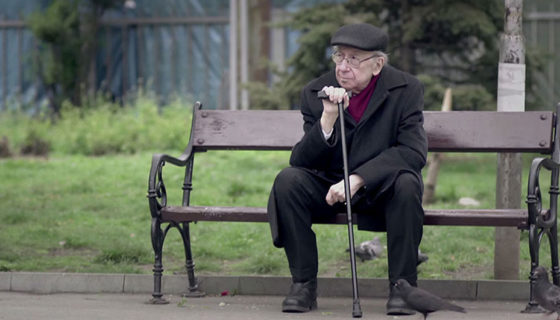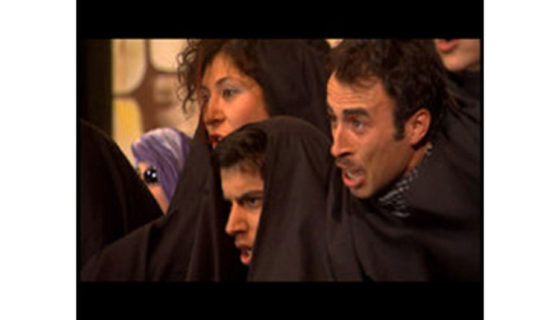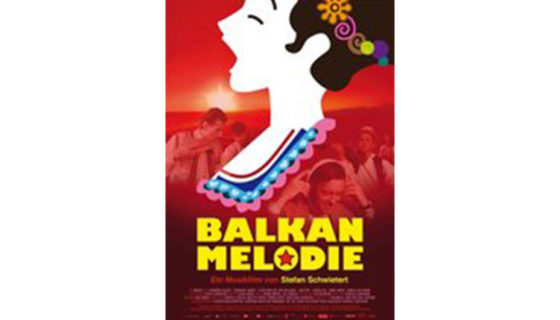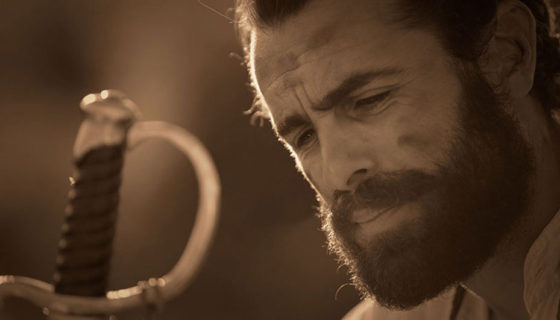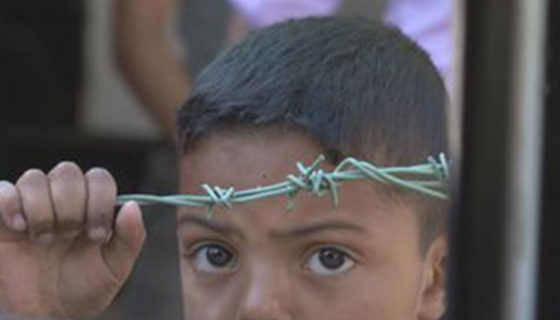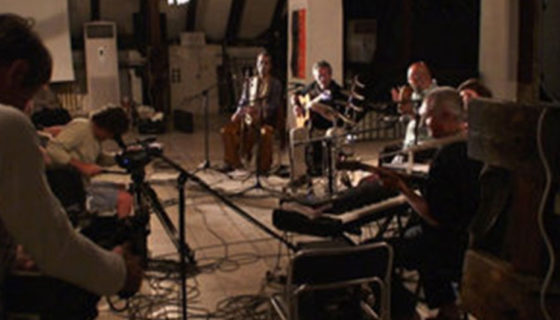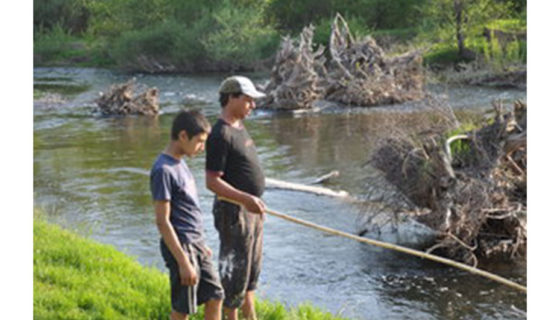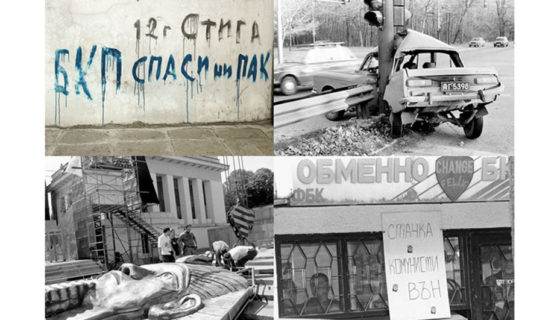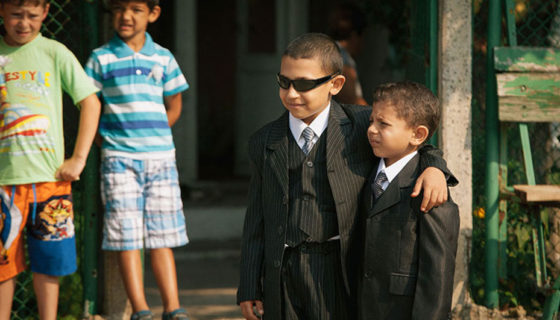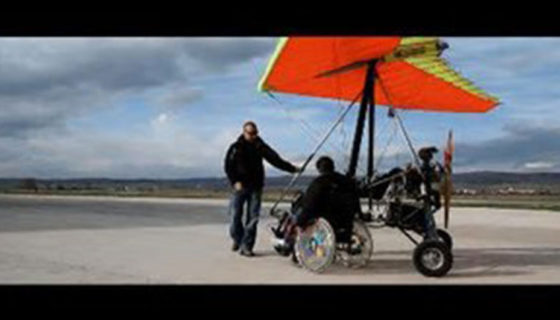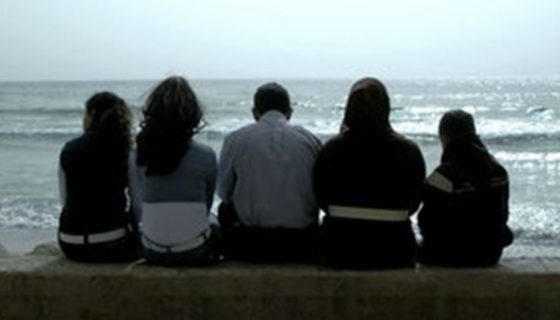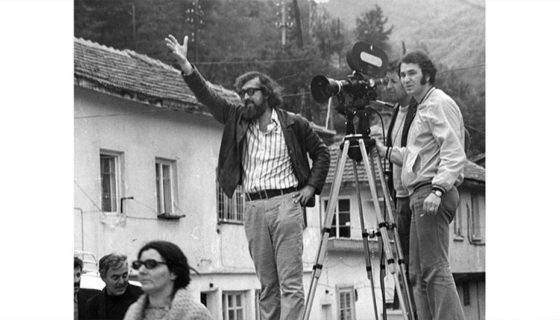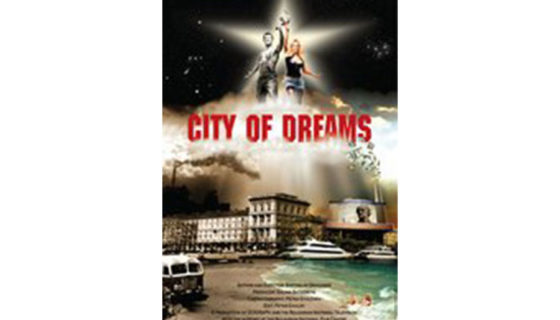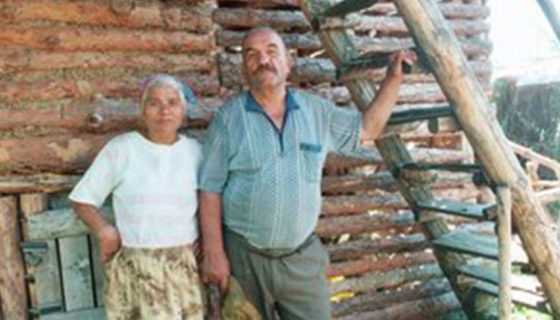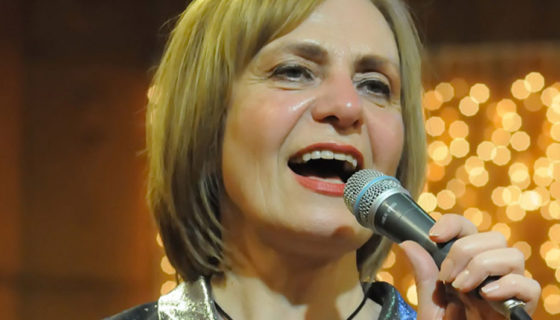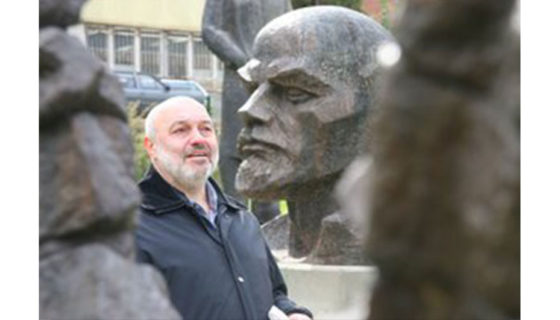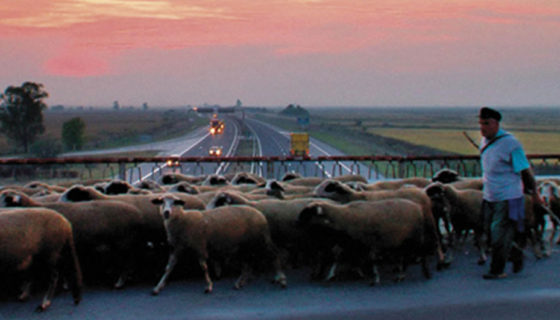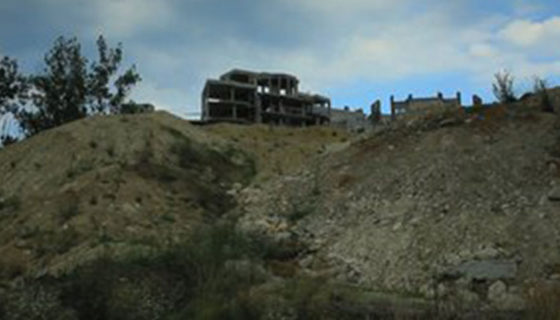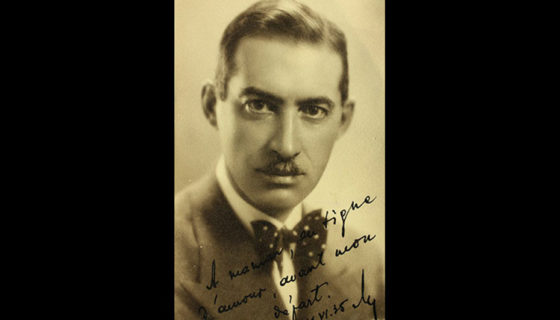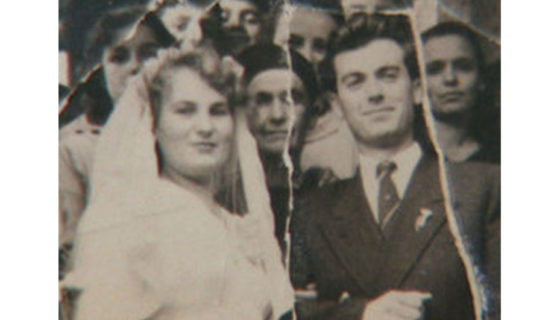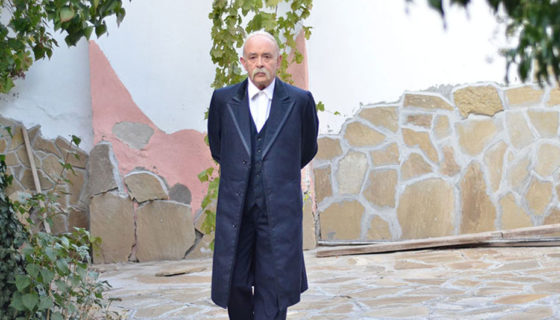- Carlos is a Flemish, who comes from a long family line of shepherds. After losing his pastures in the Pyrenees, he arrives in Bulgaria with his 240 cows. He doesn’t speak a word of Bulgarian, but he firmly believes in the power of his own strong and initiative personality. Yet, he is not prepared to face the unprovoked hostility of the locals in the village of Leskovets. It’s no go! Carlos is forced to leave and cross the country. At long last he finds his paradise in the village of Strandja.
- The work deals with the figure of Ivan Stoianovich (Angeleto) and his role in Bulgaria's history. He was a revolutionary, a public and political figure, director of posts and telecommunications, a nihilist by occupation, and a courtier deep in his heart. He lived in the turbulent early decades of the twentieth century with their heated political disputes, two world wars, and all sorts of ups and downs. He died on 14 February 1947, telling his dearest and nearest two days earlier: ‘You'll spend your life sousing in a cocktail of venom, envy and mainly, ignorance. Ant that is why, bidding my farewell to life, I pity you.'
- pedagogue, publicist, winner of the herder Prize academician Marin Goleminov. The film reveals his arduous road of a great artist and a dignified Bulgarian in the difficult times of the crucial for his homeland and for the whole of Europe 20th century.
- Plovdiv is the dominant theme in this documentary about the artistic past of the city and particularly, of that of the Old Town. Bulgarian jazz musician Ognian Videv is among the last and undoubtedly, most renowned Plovdiv Bohemians along with the departed artists, musicians, poets, writers and actors such as Atanas Krastev, alias Nacho Culturata; Georgi Bozhilov – Slona; Katia Paskaleva, Dimitar Kirov, Georgi Boiadjiev – Boiadjana. He is indelibly related to Plovdiv. The musician declares his love to his guitar; his memories evoke moments of the reality and of the past. Music makes us think about ourselves and how fleeting life is.
- Immediately after 1989, years of great disappointments and problems followed, as seen through the eyes of the people from Belitsa, who are well aware of the failings of the new powers that be, neither do they forgive "the old good days“ under Todor Zhivkov; they fight and accept the facts philosophically.
- In the day-to-day life in a small village of Ribnevo in the Rhodope mountains the traditions, religious rites and morals of two worlds – Islamic and Christian coexist peacefully.
- In 1977 aboard the Voyager space shuttle greetings in various languages and selected pieces of music, including a performance by Bulgarian folklore singer Valya Balkanska, were launched into deep space. I then started wondering what would happen, if a bunch of extraterrestrials came to Earth just to hear Valya Balkanska perform live. That was how the idea for this film originated. With the tragic death of Andrzej , our friend and producer, it lost any sense. But then, amidst the hopelessness and the grief, a new idea emerged: the story of Orpheus, who descended into the Kingdom of hades to bring his dear Eurydice back to daylight again.
- The largest river in Europe, the Danube, takes its sources from Germany and, after crossing 8 European countries, flows into the Black Sea. Virtuoso musicians from the countries along the Danube met onboard a ship. They sailed upstream in order to play the music springing from the native customs and traditions of their nations. In the language of music they managed to efface the boundaries, either actual or imaginary, which still exist in the minds of people.
- On the night of 20/21 August 1968, the Combined Forces of the Warsaw Pact invaded Czechoslovakia to reassert the Kremlin’s control over the country. On 29 October 1968, three sophomores from the University of Sofia were arrested: Edward Genov, Alexander Dimitrov and Valentin Radev. Their ‘crime’ was in that they would not go on living a lie because the political repression has silenced dissent. The boys confronted the communist repressive machine for dealing with political gadflies. But then again, did 1968 actually happen in Bulgaria?
- A film-portrait of a journey to a man who in times of universal strive for refuge had made the choice to be left alone. A film about the romantic side of his poems and his longing for human communications through the destiny he himself decided to have.
- The children of two families – one Christian, one Muslim, have to travel in difficult conditions many kilometers every day to reach the last remaining open school in a frontier area located between Bulgaria, Greece and Turkey. What gives hope to these people in their life in an abandoned region with a complicated historical background?
- A film about the little town of Topolovgrad and the town’s community center.
- Dr. Constantine Stoilov - being one of the three most influential Bulgarians of all times, he has been depicted by a number of outstanding writers. Despite having a cold appearance, he is an extremely emotional person. As a politician he is a sophisticated European although in his innermost he is a meek religious man.
- This is a documentary film built on the novelette-like principle. A historian, a political scientist and an artist start on a tour round the Balkan countries aiming to put an end to an old dispute – what should an all-Balkan textbook of history be like, since that is one of the ways to find a common ground for the Balkan peoples. Which of the events should be included in this general history book, which are to be highlighted and which should be passed over in silence? Is it possible for a history textbook of that kind to carry out the mission it’s been assigned to – reconcile the irreconcilable? Is it really possible for such a textbook to be written?
- A film about Marcel Cellier who discovered for the world „Le Mystѓre des Voix Bulgares“, and their true cinematic story. For more than 50 years the swiss musicologist and researcher Marcel Cellier has been travelling beyond the Iron Curtain, collecting the best of the authentic folklore music of Eastern Europe. Following his steps, the film “travels“ around Romania and Bulgaria of today, revealing the secrets of the legendary Bulgarian choir “Le Mystѓre des Voix Bulgares“, winner of the most prestigious Grammy music award, as well as of the famous Romanian musician Gheorghe Zamfir.
- A Bessarabian Bulgarian who has graduated in film directing in Sofia has made a revealing portrait of his family in the Ukraine. Its fate reflects the ethnic, political and social dimensions of our present time.
- is a documentary about the man, the writer, the script-writer Pavel Vezhinov. This is a film about our spiritual memory.
- A film about Binka Zhelyazkova, the first woman film director in Bulgaria and her extraordinary life in cinema. In the span of 40 years in film, Binka Zhelyazkova faced disappointment over communism, censorship, banned films and long periods of silence, but nevertheless her pictures reached audiences far beyond Bulgaria at such renowned film festivals as these held in Cannes and Moscow. By following into her footsteps, the director seeks to rediscover her own roots and to give a voice to this exceptional woman and a filmmaker.
- . It is a film about more than just Bobby, his TV or bread deliveries. Our main character, per se, guides us through the suffering, misery and tribulations of the Gypsy community, who still, or rather, yet, persevere and coexist within true joy and happiness. We shall meet a transvestite, getting to know his/her ups and downs. We shall attend the all-Gypsy church choir rehearsals; we shall make acquaintance with a Roma boy, adopted in the US some 20 years ago, who meets his natural mother for the first time. Well, just go on and watch the movie. It shan't let you down till the end.
- Two small villages, populated with representatives of one of the most oppressed religious communities in Bulgaria – the Catholics. How do they get along today with their neighbors – Orthodox Christians and Muslims?
- An artist is searching to establish dialogue in the chaotic system of values and the lack of spirituality in the surrounding environment. He finds his "bridge over the wall“ in different parts of the world with people of various denominations. With the same passion he paints pictures, decorates churches and composes music. He believes that artistic language is nearer to people than the language of the politicians.
- Two Roma teenagers, Tsvetan (18) and Nasko (13) are friends. They live in the poorest region of Europe. Two years ago Tsvetan and the Bulgarian girl Albena (16) stood on railway tracks in front of on-coming train because their love was impossible. Albena died and presently, Tsvetan thanks God for the new lease of life he was given. Nasko depressed because his mother has abandoned him. Amidst the horrifying poverty the two friends are striving to find a way and a reason to survive.
- The film's title an ironic extension of Sigmund Freud's popular rem "America is a mistake, admittedly a gigantic mistake”. The documentary consists of interviews with public figul active in zones with the highest intensity of simulationtics, business, media, church ...
- The family in this story is that of the German writer Angelika Schrobsdorff. Dictatorships, the Cold War, the fall of the Berlin Wall and the conflict in the Middle East changed the life of this family in decisive ways. The narrative focuses primarily on events in Bulgaria that began with an escape from Berlin in 1939.
- How has Europe seen Bulgaria over the centuries, and how have we, the Bulgarians, perceived the world and ourselves as a nation…
- The story of Bogomilka Manolova, classified as gravely disabled with a personal assistant, and her striving for a full life.
- A 7-year-old girl from Vietnam and a 15-year-old boy from Beirut are the Bulgarian symbols of the Communist internationalism in full play. These are "children of drujba“, born in countries struggling for their independence and socialism, nurtured and brought up in socialist Bulgaria. With the fall of the Berlin Wall and the collapse of socialism, these "children“ have been forced to grow up quickly and decide whether to return to their native countries or to be lifetime emigrants.
- A documentary about Todor Andreykov, the "Cinema Man", as he was called by the filmmakers on the occasion of his 60th anniversary. A film about the man Todor Andreykov, who loved cinema more than he loved himself... A film about the film critic Tony Andreykov, a walking encyclopaedia of world cinema... A film about the teacher of cinema, Prof. Todor Andreykov, who left a fragment of his heart in all the generations of contemporary Bulgarian filmmakers. A film about the "poetry of interpersonal silence", about the "imprinted time" of the 20th century and about the unbreakable love for the great illusion, THE CINEMA...
- reveals the two faces of one Bulgarian town: the socialism of yesterdays and the pop folk music of today. Built in the 1950s as the symbol of the socialist system and the bright future, Dimitrovgrad has turned into a symbol of the capitalist dream and pop folk. The wind of change swept the older idols only to reinstate new ones. The film is a merciless dissection of the transition period after 1989 told from the point of view of several ordinary families from the town of Dimitrovgrad in southern Bulgaria. 20 years after the onset of democratic changes past and present, nostalgia and luxury coexist in two parallel worlds – in the Club of the Brigadier Movement Participants and the pop folk club.
- The film tells the story of the last sites of making charcoal in Bulgaria. We get acquainted with the last masters of kilns, hereditary charcoalburners, who have preserved the ancient craft over the centuries. But the outdoor making of charcoal, this "black gold“ of the Strandzha and Rhodope Mountains is already completely banned.
- A documentary about the walk of life of the great jazz singer Yildiz Ibrahimova; about the dramatic ups and downs in her life; about the colours of her wonderworking voice, whose vocal range spans over four octaves; about her unparalleled improvisational talent capturing the hearts worldwide; about her thwarted love with the man of her life, Ali Dincer; about her great expectations and belief in future...
- The film is an attempt to uncover the reasons which will make a good programmer turn to creating computer viruses and to show the resulting damages. The action is based on interviews with various specialists in this field. Could computer viruses be a symptom of the plague of modern society in its striving to create artificial intellect?
- The documentary film explores historically the phenomenon of the socialist Realism. Using a lot of archives, footage, photos, documents and analysis of the processes in art, the authors show the clearest manifestations of the socialist Realism and trace the origin, bloom and the decline of this method. With pain and humour the film tells dramatic human stories and shows the works of talented authors and artists in Bulgaria. The film also reveals the conditions in which the artists lived and worked and shows how the cultural policy of the USSR dominated the processes in the country and the entire socialist region.
- A biography of Constantine Velichkov. A prominent politician and public figure, probably the last idealist of the revolution, a hopeless romantic, writer, intellectual, gentle lyrist, talented artist and a die-hard publicist. His oeuvre enriched Bulgarian literature in the post-Liberation period. He laid the foundations of fine arts, of theatre and the art of singing in this country. He modernized the education system. A Mr. Clean, readily sacrificing himself for Bulgaria. His phrase "I will not buy that“ was popular with his contemporaries as a means to fight corruption or unfairness in his political or personal relations.
- In Cuba everything is expressed in music: declaration of love or rich harvest, birth of a child or loss of a donkey, longing or melancholy. Though the Cuban music is wellknown all over the world, few know what "son“ and "bolero“ mean, when these styles emerged and where they originated from. Thanks to the great Bulgarian singer Jordanka Hristova we are opening the secret room of Cuban music and the forgotten files, where the history of "son“ and "bolero“ is kept.
- Bulgaria is the last country in Europe where not long ago dancing bears could be spotted in the streets, led on chains by bear-ward gypsies. Under pressure exerted by environmental organizations this practice was banned. With the generous financial help of western foundations the biggest and most sophisticated Dancing Bear Park was built near the small mountain town of Belitsa, and the surviving animals were resettled there. The film tells the story of the bears and the people - the former bear-wards who are left without their livelihood, and the local impoverished population who say with envy: “In Belitsa you should be a bear!”
- 20 years after Marin Marchevski has made another film about his former heroes Gosho, Tsetso, Boncho and Nedelcho. The four men speak about the hindrances and challenging experience they have lived through in the past years. Their stories – funny, sad, comprehensive, sometimes even absurd – reflect life in Bulgaria after the upheaval. The film is also about the undying courage of the four racers – four passionate dreamers, who remained true to themselves and never let hardships break them.
- “Political apathy is a choice, apathy against nature is suicide” reads the placard of the youth who have occupied The Eagles’ Bridge in sofia as part of the protest against the ruling of the supreme Administrative Court to delete strandzha National Park from the register of the protected territories. Mountains, rivers, dunes, cliffs, coastal areas, plant and animal species, habitats and unique natural landmarks can disappear from the face of the Earth by a single word “deletion”.
- A tough journey of a woman from the comfort of her German home back to her roots; to the hard existence in her fatherland, which is both striving for survival and a sense of life … A long journey of a small East-European post-socialist country to the high living standards of the West… A film about the “road to Europe” that goes through Bulgarian village – to a destination unknown…
- Dimitar Shishmanov, son of Bulgarian writer and researcher Prof. Ivan Shishmanov, was a lawyer and diplomat, writer and politician, whose name was coercively wiped off in 1945. The documentary lifts the curtain on the unjust obliteration, bringing this very interesting figure as closer as possible through his confession and personal revelations.
- The film consists of three cameos about three types of life, three ways of dealing with existence. The first of them is a pastoral scene of a shepherd who tends his flock atop the Kalin mount. The second cameo is a dramatic account of the watchman in the power station near Kalin. The third is a tragic tale about the psychiatric hospital in the village of Pastra.
- This is a film about the difficult and unpredictable life of Peter Dinev, a composer of liturgical music. He was a witness of the collapse of three empires, twice witnessed the mass desecration of churches but he managed to preserve the spirit of the Bulgarian Renaissance to the present day. is an attempt to unify the Byzantine tradition, modern European thought and the experience of a man who lived in a state which does not like its own citizens.
- When in 1961 Albania broke off its relations with the Soviet Union, Albanian men married to foreign women were forced to split up with their wives and drive them away. The official reason: fear of espionage. Thus a coercive mass expulsion of women and children started in Albania. Those, who did not obey, spent years in prisons. Families were torn apart for more than 30 years. Today these families are trying to reunite. Will they succeed? The film tells the stories of three of these couples, and of those apparatchiks and officers of the secret services who brought about their destruction.
- The story of is all about the time and the space of the past moved on to the reality of today. It is not only a tribute to Nikola Vaptsarov on the occasion of his 100th anniversary, rather the work conveys the message of the poet to the present day young generation of the exceptional power of human spirit turning the experience of suffering for a better life into a triumph.
- The documentary tells the story of the life and the unique endeavours of Dorbri Zheliazkov, a pioneer in Bulgarian industry, who set up the first factory within the Ottoman Empire ever. Educated and go-getting, he was an ingenious organizer, inventor and merchant, who took part in the struggles of the Bulgarians for liberation. Forced to immigrate to Russia, he then brought back know-how and industrial technologies. A truly Renaissance man of his age, he readily sponsored socially useful causes. The vicissitudes of life never shook his unbreakable spirit.
- The enormous power of the human spirit triumphing over suffering. This is a film about the creative rebirth of Zlatyo Boyadzhiev and Boris Hristov.
- Shina Terziyska is an old woman, the only one left in the village of Koukouvitza. There is no water there, no electricity – just a snow-covered hill and 60 empty houses. Once a month, when the old age pensions are paid, Shina goes down to Shiroka Laka on foot. Seven kilometers. Two hours alone in the mountain. This is another world – the world of an empty village.
- The film presents an old rare custom in the Easter night. At midnight worshippers go to the cemetery and put ritual breads and painted еggs on the graves to pay their respect to the dead. The Easter eggs are connected with pre-Christian practices, with the ancient worship of light, with the cult to the dead and the beliefs about the origin of the Universe in Bulgarian folklore.

